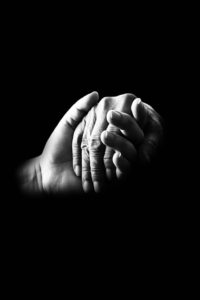Decades ago being sick was a medical phenomenon and no other discipline had anything to intervene there. Medical Science engrossed this field. But during the 18th and 19th century, various other discipline started to intervene in the medical field. Public Health emerged to ensure peoples health rights and define risk factors, distribution, the pathogenesis of diseases that actually helped people to overcome some of the endemic and pandemic diseases at that time.

Some of the disciplines like Sociology, Psychology, Behavioral Sciences, Anthropology also took Health and illness into account and define the pattern, distributions, risk factors, prevention of disease from their methods. Some discipline added social, cultural and behavioral variables in medical sectors to grasp the connection of this variable with healthcare.
The field of social medicine seeks to implement social care through understanding how social and economic conditions impact health, disease and the practice of medicine and fostering conditions in which this understanding can lead to a healthier society
When a person becomes ill he/she usually become isolated from the normal world, at least when they got some severe diseases. They feel mentally alienated from the worldly activities and continuously develop a trauma. This trauma later develop as a barrier to be back in normal life even when they heal.
Psychology aims to reduce this trauma in various ways, Like:
- Not providing information that would consequently traumatize him.
- Cure patients physically and mentally
- Counselling, that aims to wipe out all the misunderstanding, superstitions, presumptions, culturally structured beliefs and social construction of beliefs about the illness.
- Consultancy, continuous support and guiding patients not only providing medicines.
- Mental and social support.
Sociologically, Talcott Parsons developed the term “Sick Role” to identify the situations go through when they exposed to a disease. Though this term implies negative meaning, its impactful to understand sickness behavior.
Parsons tried to define the behavior of ill people when they exposed to a disease. To him, the severity of an illness depends on peoples perception and attitude towards a particular illness. Sometimes people behave in a different way when they are ill, even though their illness is not that severe. Their behavior makes them even sicker and facilitates the way to be more traumatized.
He called sickness behavior as “deviant” refers to a deviation from normal life. People should not be traumatized very easily because it will destroy their healing capacity. So person illness mostly depends on his perceptions, attitude, and behavior toward that particular illness.
Michael Foucault discussed medical science in his writings. He focused on how Bio-medicine took over the human body and that gave birth to what he called “medical gaze”.
Bio-medicine practices extensive power upon human bodies with various instruments (for example Operation Theatre) and makes human being an object. Doctors treat human as an object, not a human being. This, as a result, make patients powerless in medical practices.
Ivan Illich, a critique of medical science has criticized modern medical institutions and practices. He defined how modern medicine has taken over a human being and created harms to a human being. Modern medicine can’t cure a man fully rather make him dependent on healthcare. Side effects of modern medicines are very noxious for human bodies. Exposure to various medicine actually hurt peoples in another way though healing some of their diseases.
Medical science no longer the only player in health care sectors, the various discipline has intervened and made it more humane and easy to access. Limitations and negative impacts of Bio-medicine were identified by these disciplines and subsequently complemented by them.
– Arifur Rahaman, Bangladeshi Sociology Student
We believe in sharing knowledge with everyone and making a positive change in society through our work and contributions. If you are interested in joining us, please check our ‘About’ page for more information
